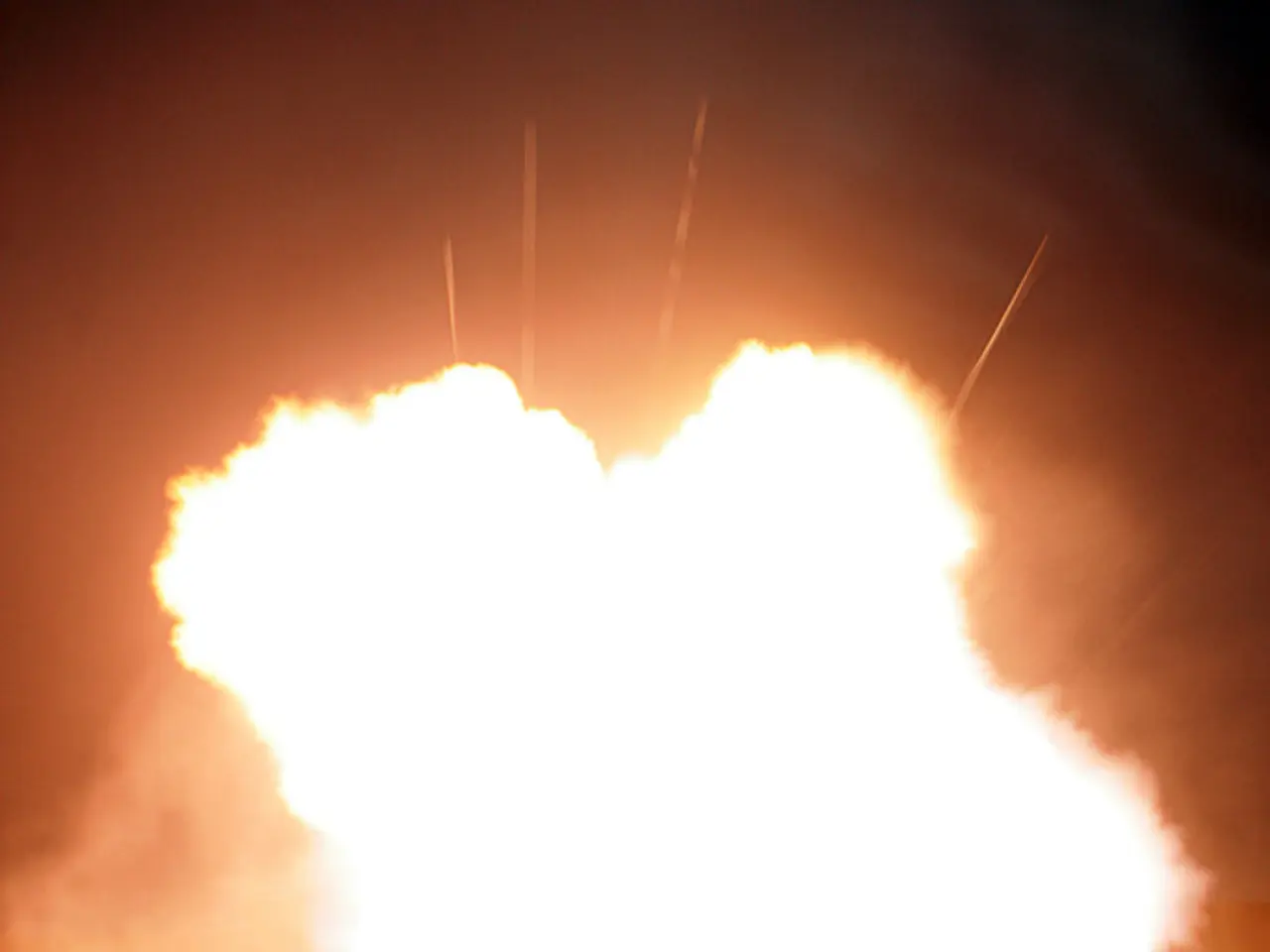Trump announces intent to significantly increase tariffs on imported Indian products due to their ongoing purchases of Russian oil
India is currently facing a tariff threat from the United States, with President Donald Trump announcing plans to "substantially" raise tariffs on goods imported from India. This move comes in response to India's continued purchase of Russian oil, a decision that has strained U.S.-India relations and threatens the wider strategic and economic partnership.
The current U.S. tariff on Indian goods stands at an additional 25%, with the new tariff set to take effect at the end of this week. This tariff, triggered by India’s Russian oil imports, is part of a broader pattern where the U.S. has implemented high duties on several countries, including India, to protect domestic industries and respond to trade disputes.
The dispute over India’s oil purchases from Russia stems from U.S. concerns that India is undermining Western sanctions on Russia. The U.S. administration considers India’s continuing purchase of Russian oil as inconsistent with the global effort to isolate Russia economically. As a result, the U.S. has retaliated by imposing the additional 25% tariff on Indian goods to pressure India to modify its stance.
India, however, has pushed back against being unfairly targeted. The Indian Ministry of External Affairs states that India's oil imports are a necessity compelled by the global market situation. Indian goods are currently subject to a 10% minimum tariff rate, and the country has accused both the US and the EU of also engaging in trade with Russia, but no further details about this trade are provided.
India began importing oil from Russia due to traditional supplies being diverted to Europe after the start of Russia's war on Ukraine. The oil imports are aimed at ensuring predictable and affordable energy costs for India's consumers. However, the proposed tariff increase by President Trump could lead to a decrease in demand, causing countries to buy more from other countries with lower tariffs or to increase domestic production.
President Trump did not specify what new tariff rate goods from India could be charged if it continues to purchase Russian oil. The tariff threat comes as he has increased pressure on Russian President Vladimir Putin to reach a ceasefire with Ukraine within a shorter timeframe. The Indian Ministry of External Affairs states that the targeting of India for importing Russian oil is unjustified and unreasonable.
India has not specified a new tariff rate for goods from India if it continues to purchase Russian oil. The country will take all necessary measures to safeguard its national interests and economic security in response to the tariff threat. The dispute over Indian oil purchases from Russia and the subsequent tariff threat has added a new dimension to the geopolitical landscape, with the U.S. and India having differing approaches to Russia sanctions, potentially risking the stability of their strategic partnership.
Sources:
- Bloomberg
- Reuters
- CNN
- The ongoing U.S.-imposed tariff on Indian goods, sparked by India's oil imports from Russia, is causing strain not only in trade relations but also in the broader context of politics and policy-and-leglegislation, as it raises questions about the future of U.S.-India relations and the country's adherence to western policies.
- As the battle of war-and-conflicts rages on between Russia and Ukraine, the general-news headlines now include the ongoing tariff dispute between the U.S. and India, highlighting the complex web of international relations, economics, and geopolitical maneuvering that continues to unfold.







